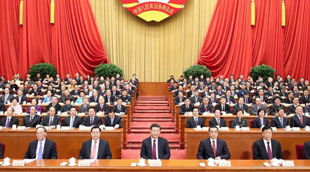
By Patrick Matsiko wa Mucoori
Book unveils the lies, intrigue, state murders
Get down!’ the policeman yelled at me, his voice both urgent and hushed. And in a desperate whisper, he added: ‘Take off the T-shirt and cap!’ I dropped to the ground….’ the screaming flashback ushers you into Dr Olive Kobusingye’s The Correct Line? Uganda under Museveni, a book that has pressed a panic button among the security establishment leading to its confiscation at the Entebbe Airport customs point and left the government flip-flopping for a justifiable explanation.

While appearing before parliament on October 13, the Minister of Internal Affairs, Kirunda Kivejinja, claimed the book is a national security threat.
Dr Kobusingye, the author, is a sister of the leader of the opposition Forum for Democratic (FDC) party, retired Col. Dr. Kizza Besigye.
The Independent has read the contentious book. It’s a chronology and examination of how Museveni has made 360-degree turn from his passionate promises and ideals of 1986 to the political evils of the past regimes he had contemptuously condemned.
It chronicles the early signs in the 1990s of what the author calls Museveni’s derailment from the Movement’s original ideals, the failed internal struggles to reform the Movement and the emergency of Besigye on the political arena. It shows how, prior to announcing his candidature, Besigye warned his family of the dangers his action would expose them to during his pursuit of democratic change in Uganda.
‘Besigye repeated his warning that we might be targeted for harassment, and I recall Margaret [Besigye’s sister now in exile] saying she was not going into the second exile,’ the author writes. Margaret Kifefe was first forced into exile by Amin’s military regime.
The author catalogues the extrajudicial killings especially of political opponents under Museveni’s regime, the collapse of the rule of law and the role of the state in the death of Besigye’s brother Joseph Musasizi Kifefe to whom the book is dedicated.
In fact in its preface, the book begins with a reminiscence of the state kidnappings and killings during Obote’s regime before it quickly brings you back to a similar state of affairs under Museveni today.
‘One afternoon in 1981 when I had been at Makerere University for only a couple of weeks, my niece Annette burst into my room at Africa Hall wailing. Her mother Beatrice Kemigisha had been taken away by Obote’s security operatives…. We never saw her again,’ the book starts.
This reminiscence brings an instant juxtaposition of the character of Museveni’s regime and the regimes he overthrew, which shows that they are not much different today.

To support her observations, the author does not wander very far for evidence. She uses Museveni’s own book and other writings on the political evils like state inspired violence, political persecution of opponents and arbitrary arrests he contemptuously condemned in the past. The author brings out how Museveni has since become a vicious perpetrator of the same evils.
For example in The Price of Bad Leadership; What is Africa’s Problem? Museveni condemned Milton Obote’s government for attacking the Kabaka’s palace in 1966. He stated: ‘During the 1966 when Obote was quarrelling with Mutesa, Obote’s army massacred many people. If Mutesa is having a political quarrel with Obote, what does the population have to do with it and why kill them? I do not agree with the proverb that when two elephants fight, it is the grass that suffers. If people are rioting you can arrest them and put them in prison. The government has a lot of power to deal with rioting people and means to control crowds without killing them.’
His statement is a stark contradiction of what his army and police did between September 10-12, 2009. The incidents were a test on Museveni’s sincerity. Museveni disagreed with Kabaka Muwenda Mutebi (Buganda’s king) who wanted to visit Kayunga, a part of his kingdom. The disagreement was sparked by a much smaller issue than the one between Obote and Mutesa in 1966. Museveni stopped the Kabaka on account that a local community in Kayunga was opposed to the king’s visit. Spontaneous riots erupted in Kampala and several districts in the kingdom. The security forces swung into action and killed at least 29 civilians. Some were reportedly pulled out of their houses and shot dead. So what had happened to the government’s capacity to arrest rioters without killing them? Had Museveni lied in his book? Dr Kobusingye’s book shows that Museveni has so changed that he is no longer his former self.
The book brings to the fore the allusion of Animal Farm politics where the animals had welcomed the overthrow of man only their new leaders, pigs, to become as repressive as the human beings they had been liberated from. The import of the allusion is that today you look at Amin, Obote and Museveni regimes and hardly notice the difference.
 The Independent Uganda: You get the Truth we Pay the Price
The Independent Uganda: You get the Truth we Pay the Price


